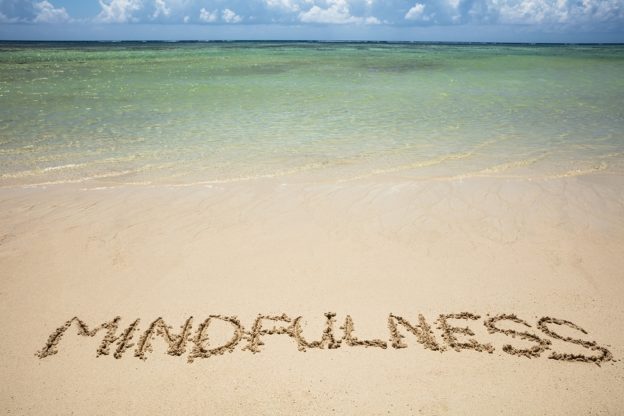Can Mindfulness help with trauma?
Trauma is a broad term and upon reading that word your mind may instantly go to the worst possible event that could happen to someone. Trauma can consist of physical or sexual assault or abuse, dealing with addiction, neglect, painful or life threatening medical procedures, being involved in a serious accident, experiencing community violence, natural or manmade disasters, being a survivor of terrorism, exposure to homicide or suicide, traumatic grief, sudden end of a significant relationship, system-induced trauma, and ongoing or relentless stress, such as bullying or domestic violence. It’s often misunderstood that a trauma is an event that has to be done to you when it can also be an event witnessed, for example a child seeing their caretaker in an physically abusive relationship or exposure to extreme violence in the community, such as gang violence. So can mindfulness help with trauma?
How mindfulness effects the brain
The answer is yes! According to Wolkin, neuroimaging scans of brains show that mindfulness meditation may help increase gray matter (think real estate for your brain) in the part of your brain that is involved in memory, decreases gray matter real estate in the part of your brain that kicks in your fight-or-flight response, and activates the part of your brain that helps regulate emotions, impulses, and behaviors. In essence, mindfulness meditation helps you calm your inner worrier and access rational, clear thinking–crucial for moving through traumatic events and memories of trauma. Practicing mindfulness meditation doesn’t mean you won’t experience painful or even traumatic events, but it may help you see them clearly, calmly, and help you move through them more easily.
Mindful practice and awareness
When we are being mindful, we are creating focused and nonjudgmental awareness to our experiences. With regular practice, meditation creates more connections between the different structures of the brain, decreases hyperactivity, and overall provides greater awareness to your own body and environment. This practices also allows a person greater ability to cope with unpleasant emotions and experiences. The increased awareness to the body and the environment allows for greater intelligence in interpreting emotions and bodily sensations. This, in turn, will increase your skill in being able to identify the emotions and source of distress and regaining the ability to self-regulate.
Here and Now
Since mindfulness focuses on the here-and-now, it helps those who may get stuck reliving the past and fearing what’s to come to become more emotionally and psychologically present. Trauma symptoms will decrease in duration and intensity and become less frequent when mindfulness exercises are used properly and routinely.
Find a professional to start
There is a disclaimer as it is important to work with a professional to start in order to best identify what mindfulness practices will be the most beneficial, as some exercises may be soothing to some and less helpful to others. Some may benefit from guided meditations while others may prefer trauma sensitive yoga or other meditative practice. Certain mindfulness practices could create heightened emotional arousal, so it is necessary to have proper stabilization skills that you can obtain by working with a mental health professional. According to Psychology Today mindfulness itself doesn’t re-traumatize an individual. Instead, it will increase awareness to those experiences and feelings and what is not yet healed.
Mindfulness exercises for trauma
Like many things in life, when you’re starting something new for the first time it is best to go slow. There are several mindful exercises that can be used such as body scans, a variety of deep breathing exercises, mindful walks, mindful eating, gentle yoga, and progressive muscle relaxation. Davis provides 4 somatic mindfulness exercises for individuals who have experienced trauma.
Mindfulness is a powerful tool that has shown to have several benefits in decreasing the symptoms caused by traumatic events and experiences.
References
Center for Early Childhood Mental Health Consultation. “Tutorial 7 · Recognizing and Addressing Trauma in Infants, Young Children, and Their Families.” Types of Traumatic Experiences, 2020, www.ecmhc.org/tutorials/trauma/mod1_3.html.
Davis, Soph Sam. “4 Sets of Somatic Mindfulness Exercises for People Who Have Experienced Trauma.” Psych Central, 8 Oct. 2018, psychcentral.com/lib/4-sets-of-somatic-mindfulness-exercises-for-people-who-have-experienced-trauma/.
Linder, Jason N. “What Is Trauma, and Can Mindfulness Help Treat It?” Psychology Today, Sussex Publishers, 19 Sept. 2019
Manitoba Trauma Information & Education Centre. “Mindfulness.” Trauma Recovery, trauma-recovery.ca/recovery/mindfulness/.
TreLeaven, David. “Is Mindfulness Safe For Trauma Survivors?” The Science of Psychotherapy, 29 Jan. 2018, www.thescienceofpsychotherapy.com/is-mindfulness-safe-for-trauma-survivors/.
Wolkin, Jennifer. “The Science of Trauma, Mindfulness, and PTSD.” Mindful, 8 June 2018, www.mindful.org/the-science-of-trauma-mindfulness-ptsd/.
Danielle Ferguson MS, APC, NCC






